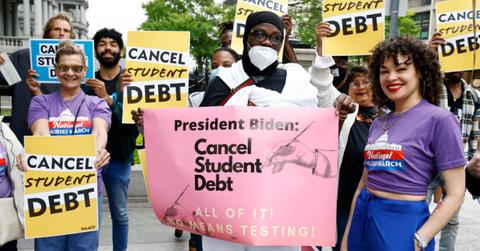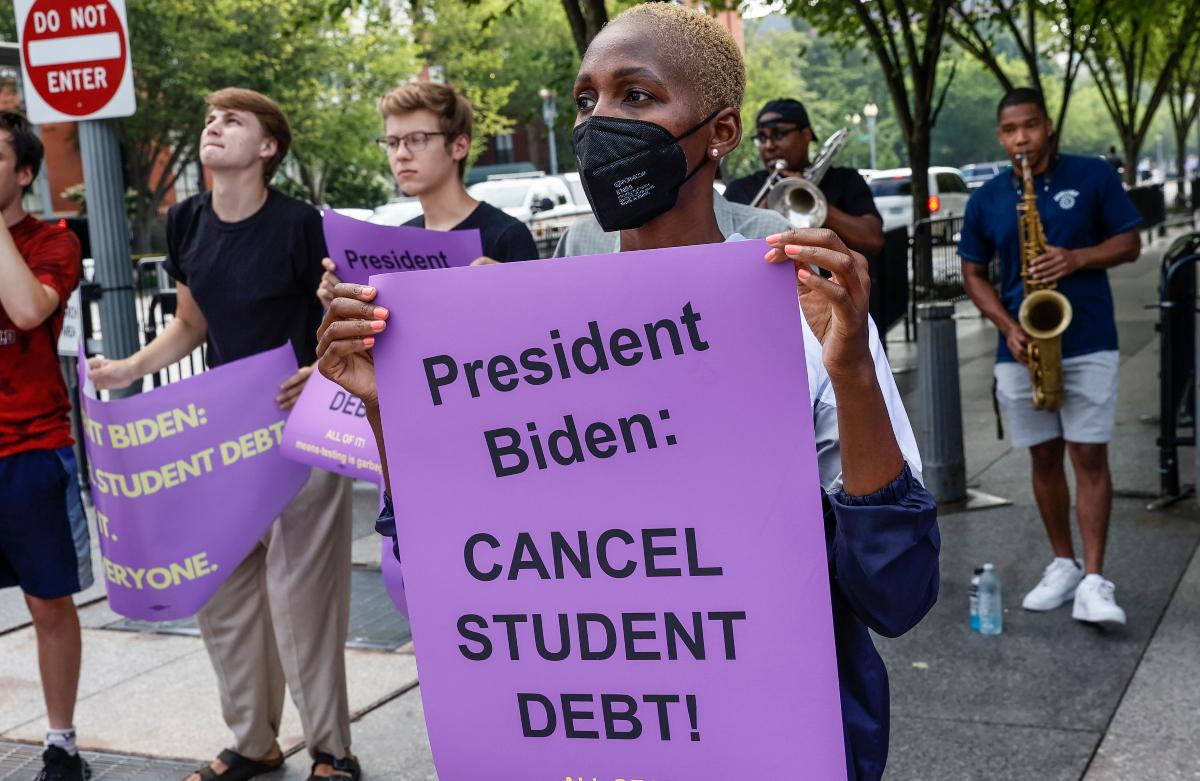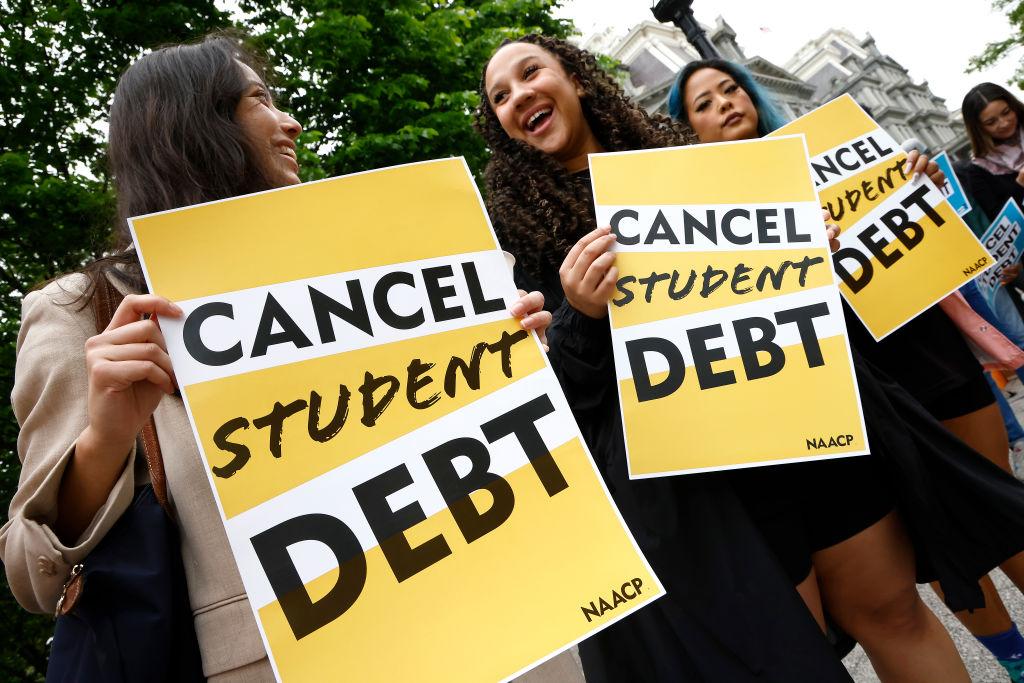Student Loan Forgiveness Hits Another Roadblock — Who Ends up Paying?
President Joe Biden's student loan forgiveness program is struggling to get off the ground legally – but who pays for student loan forgiveness?
Nov. 11 2022, Updated 10:58 a.m. ET

President Joe Biden announced his student loan forgiveness program on August 24, 2022. In a statement from the White House, Biden detailed the plan that promised to cancel $10,000 of student debt for low- to middle-income borrowers.
Since the announcement, Biden's student loan forgiveness program has hit several legal roadblocks, most recently in Texas— just a few weeks before student loan payments are set to resume in January.
So, will student loan forgiveness happen — and who ultimately pays? Keep reading to find out.

President Joe Biden has a three-part plan for student loan forgiveness.
In his official statement, Biden broke down his three-part plan that will target "the burden of growing college costs and make the student loan system more manageable for working families."
In that plan, along with canceling up to $20,000 in debt cancellation to Pell Grant recipients and up to $10,000 in debt cancellation to non-Pell Grant recipients (if the borrower's individual income is less than $125,000), there would be reductions to monthly payments and holding colleges accountable for price hikes.
However, many people are worried about how much student loan forgiveness will cost.
Student loans in the U.S. stand at around $1.75 trillion (close to the GDP of South Korea, the world’s tenth-largest economy).
After Biden's plan was announced, the Congressional Budget Office (CBO) announced that President Biden’s student loan forgiveness program will cost more than $420 billion.
"The cost of outstanding student loans will increase by $20 billion because an action suspended payments, interest accrual, and involuntary collections from September 2022 to December 2022. [...] After accounting for those suspensions, CBO estimates that the cost of student loans will increase by about an additional $400 billion in present value as a result of the action canceling up to $10,000 of debt issued on or before June 30, 2022, for borrowers with income below specified limits and an additional $10,000 for such borrowers who also received at least one Pell grant," the CBO wrote in an analysis published on Monday, Sept. 26.
So, who really pays for student loan forgiveness?
When governments spend money, they either raise funds through taxes or issue new debt. For instance, the Inflation Reduction Act proposes to raise money by increasing the minimum corporate tax to 15 percent, applying a 1 percent tax on stock buybacks, and pushing for better tax enforcement by the IRS.
The total U.S. national debt is now over $31 trillion and the debt-to-GDP ratio is around 124 percent.
All government spending has to be paid for by taxpayers, both individual and corporate. Even if the spending is debt-financed, the interest and principal have to be paid by the taxpayer. The average debt per U.S. citizen is now above $93,000 and growing.
Despite costs, the student loan forgiveness program has some legal hurdles to get over.
Shortly after the Biden administration started accepting student loan forgiveness applications, a federal judge in St. Louis dismissed a lawsuit filed by six Republican-led states to stop the program.
Student loan forgiveness is also being challenged by a U.S. District Court judge in Texas, who called it a "complete usurpation" of congressional authority by the executive branch.

"In this country, we are not ruled by an all-powerful executive with a pen and a phone," Judge Mark T. Pittman wrote. "Instead, we are ruled by a Constitution that provides for three distinct and independent branches of government."
The Biden Administration has already appealed the decision.
"We strongly disagree with the District Court's ruling on our student debt relief program," White House spokesperson Karine Jean-Pierre said per NPR. "The President and this Administration are determined to help working and middle-class Americans get back on their feet, while our opponents – backed by extreme Republican special interests – sued to block millions of Americans from getting much-needed relief."
Student loan payments are set to resume on January 1, 2023, so the clock is ticking.
